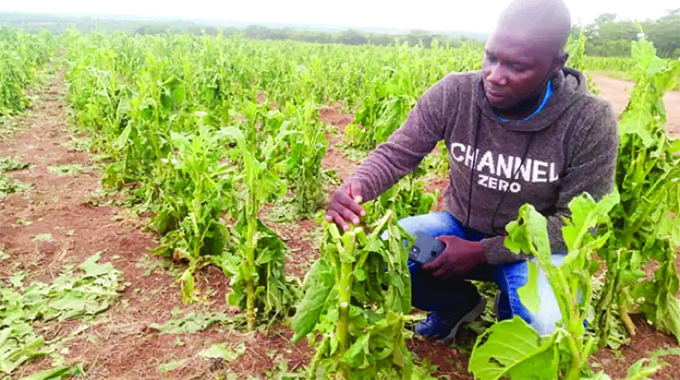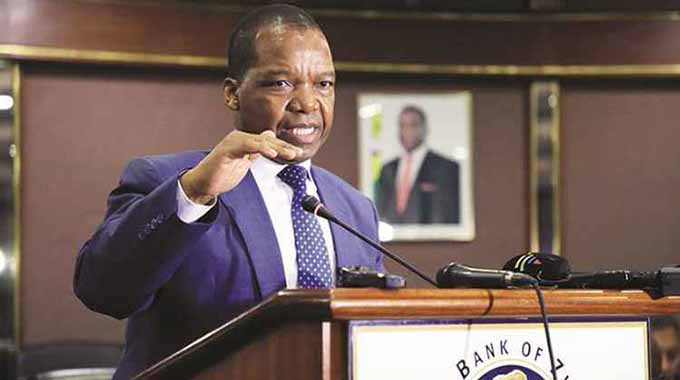Editorial Comment: Making life easier for most now Govt policy

One of the many reforms of the Second Republic is the determination to streamline bureaucratic processes, dumping the ones that are no longer needed and making sure the unavoidable are at least fast, efficient and set up with the comfort of the customer, rather than the bureaucrat in mind.
The latest is the registration of vehicles and buying the number plates every vehicle needs.
The first move was to decentralise this to a growing number of post offices and tax offices, and very shortly after realising that if a customs office at a border post could do this then it could be done as the car arrived in Zimbabwe, without any need for temporary plates and driving backwards and forwards, arguing with police, while the paperwork was sorted out.
Now when your car arrives at the border post buying the plates is the last step at the customs house after you have cleared the import and paid all the duties and taxes.
Of course the plates still need to be screwed on, and most people will not be travelling with the tools and screws. But we assume that businesses at the border towns will quickly offer this service, probably in a sheltered spot on the forecourt of a service station where you can park while you nip into a local supermarket or other agency and buy your insurance, licence and radio discs.
The few minutes will be more than made up when stopping at a police checkpoint is a simple 30 seconds while some young officer gazes intently at your windscreen and waves you on.
Even if you doing this commercially it is not a problem since the importer is supposed legally to register the vehicle in their name and then go through the ever simpler process of changing ownership when they sell.
The new process also helps the bureaucracy since there are no longer dead times and grey areas of vehicles driving around without plates and just a piece of fading cardboard taped on the inside of a window.
Everyone knows from the moment the car is in Zimbabwe what it is and who owns it.
There is still need to simplify the change of ownership, and more decentralisation of the regrettably necessary police checks, which did so much to end the almost endemic vehicle theft we once suffered.
But this should be simple once everyone starts thinking like a customer, not a bureaucrat.
That process, plus the taxes that have to be paid when a car changes ownership, are among the reasons why so many do not bother, but just keep driving under the original owner’s name, something the police have discovered is more common that they supposed.
There are dangers to both buyer and seller when the formal process is not completed. Legally, although money has changed hands, the car still belongs to the seller, or the original seller if there is a chain of such deals.
The owner of record could technically just pick it up in a parking bay with a spare key and drive off.
The seller has to think about their own dangers. The buyer could come to the attention of the police for some reason, such as an accident or a hit and run or even a robbery.
And then the seller and their neighbours might be woken up one morning by armed police loudly announcing that they are surrounded and must come out with their hands up.
The other area where welcome change has come is at the passport office. The new electronic system has been introduced. New passport designs were needed to incorporate machine readable chips as part of an international switch over. Those who are planning to sue the Government to keep their old passports have probably not realised that even if they won no other country would let them in with the old-style design; the move is not some hair-brained scheme of the Zimbabwean authorities, but a new international standard with deadlines.
Where the Government wins extra credit, a lot of extra credit, is that the switch-over is being accompanied by a far more rapid process of applying for the passport in the first place, and a guarantee that the new passport will be available in a week or two.
This has also seen a huge upgrade in what is easily the largest and busiest passport office in the country, the one in Harare.
Forty years ago it was moved into some temporary buildings that were inadequate when the move was made and became even more inadequate as time marched on.
A new building was authorised more than 20 years ago with proper working spaces and banking-style halls, but the old dispensation never really gave it any priority and contractors would do a stage, wait forever for payment and so stop work.
The Second Republic, which did sort out the budget and the fiscal system, so it had the money, paid the bills, got the contractors back and finished the building, equipping it with the new passport system in the final stage.
So now all bottlenecks are removed. If you need more officers at some stage, and at one stage they reckon they need 19, simply staff more of the teller cubicles.
It now looks more like an upmarket bank complex rather than some “temporary” and grossly overcrowded down-market illegal vendors dumpsite.
Costs are a bit higher, but a passport lasts most people a decade and even now is less than the petrol needed to drive to Johannesburg, and a tiny fraction of the cost of a single air ticket.
Most countries have switched to cost recovery fees for travel documents, which is fair enough since travel costs are far higher than passport fees.
Zimbabwe maintains free birth certificates and free ID cards since everyone must have these regardless of whether they live in a small lodger’s room or a Borrowdale mansion.
One mantra of the Second Republic was “ease of doing business”. The same mantra is being applied to ordinary people in their ordinary lives. No one likes dealing with the bureaucracy or paying taxes, but when this can be done in pleasant surroundings and dealing with adequate numbers of knowledgeable staff, we live with it.
And when responsible ministers and their top advisors insist on the new way, they deserve the credit for the change in mindset.









Comments